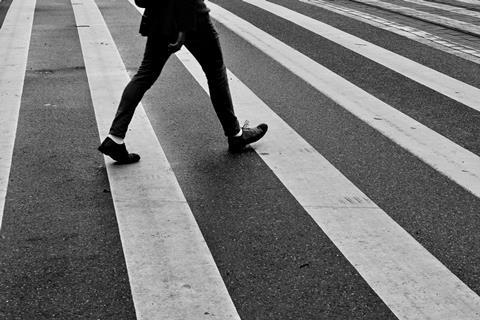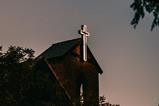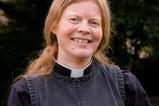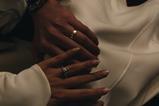Veronica Zundel unpacks how we each exercise faith every day, and the importance of evidence in the absence of proof

“I’ve lost my faith” announces a friend. The obvious temptation, as with other lost things, is to ask: “When and where did you last use it?” But I resist that – it would be unkind. And anyway, she has confessed lately to praying for her adult children – one seriously mentally ill, the other work-stressed – so perhaps her faith isn’t as lost as she might think. Perhaps she has just lost her tolerance for Church; something which happens to the best of us at times.
But what is faith anyway? I was contemplating this as I crossed a pedestrian crossing on the green light the other day. There was a red double decker London bus approaching me and showing little sign of slowing down, but I had faith that, the light for drivers being on red, it would stop. What was that faith based on? I certainly had no proof, but I had plenty of evidence from past experience that bus drivers will generally (though by no means always!) stop at red lights. So I crossed. The balance of evidence was in my favour.
This is why I get annoyed when ardent atheists declare that there is no proof for the existence of God. Of course there isn’t – why else would our commitment to God’s existence be called ‘faith’? If there were proof, there would be no need for faith: we would walk by sight. The Bible tells us that (unlike love) faith and hope are merely temporary – when we have direct knowledge of God, when God finally restores all things and we see divine reality fully, there will no longer be any need for either faith or hope. Their tasks will have been fulfilled.
No proof – but surely that does not mean no evidence? A jury is not required to prove the innocence or guilt of a defendant. That would be beyond their capacity. They merely have to decide, on the basis of the evidence they are given, whether there is a good enough case for guilt or innocence.
Evidence in our everyday lives
And what of the evidence for God? After a gap of six years I have recently gone back to writing a memoir I started several years ago. It’s focused on my late brother’s life and death, and I’m just in the early stages of writing about what happened in the years immediately after his tragic death at just 27. It’s not specifically a Christian book, though I recount my baptism at 16 and make no secret of my faith.
I get annoyed when ardent atheists declare that there is no proof for the existence of God. Of course there isn’t
However, as I write, I am constantly struck by how many pieces of what an agnostic would call ‘luck’ followed me in those years. It’s almost as though someone with a certain power over events was looking after me…right down to the week when I gave God a deadline, saying: “Get me a new place to live by Friday” and, lo and behold, I heard of a possible place on the Thursday and got a letter telling me its address on Friday.
We have no proof for God, but one could go on forever gathering evidence from Christians for a benevolent being ruling history, who, when asked to, provides for those who have committed themselves to God – and indeed for those around them for whom they pray. As John the Evangelist said: “Jesus did many other things as well. If every one of them were written down, I suppose that even the whole world would not have room for the books that would be written” (John 21:25).
Acting on our faith
There are those, both within and outside the Church, who seem to think that faith means, in the words of the White Queen (from Alice in Wonderland): believing “six impossible things before breakfast.” But believing something is really only the precursor to faith. It doesn’t become faith until we act on it – till we take that first step across the crossing. I remember many years ago seeing a toddler pushed along in a buggy by his father.
It was a windy day, and the toddler had surrendered to the wind blowing his hair back and rushing past his face. He had the exhilarated expression of a First World War aviator in an open plane. His confidence in his father pushing him along and keeping him safe was total. That, I thought at the time, was faith.
If I have faith that my kitchen chair is strong I will sit on it. I don’t need to apply a battery of tests on it first. Past experience tells me it will hold. That’s faith.
































No comments yet